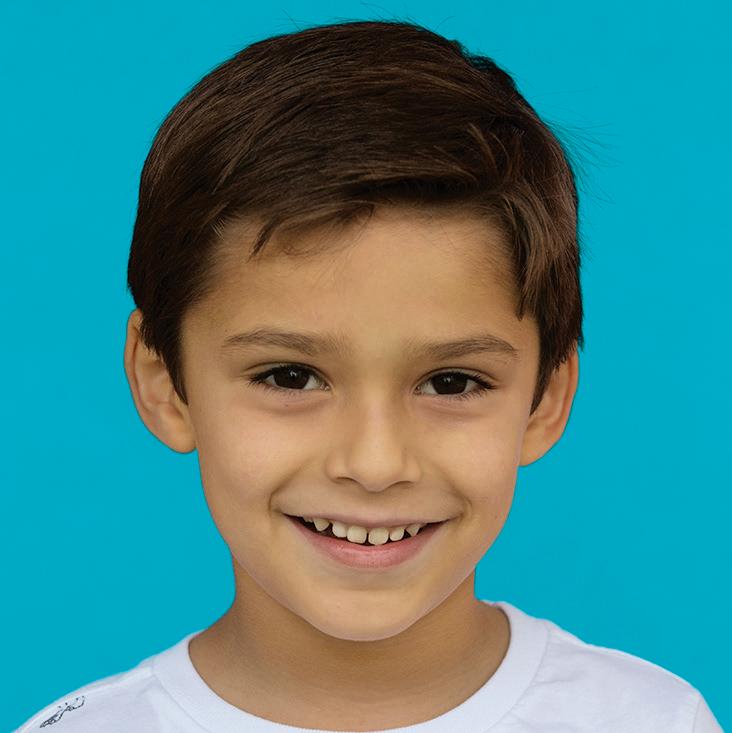
10 minute read
A Unique Path to Succ ess and Happi ness
A Unique Path to Success and Happiness
Social and Emotional Learning at Pegasus
Advertisement
Damon Wright and J.J. McGawn

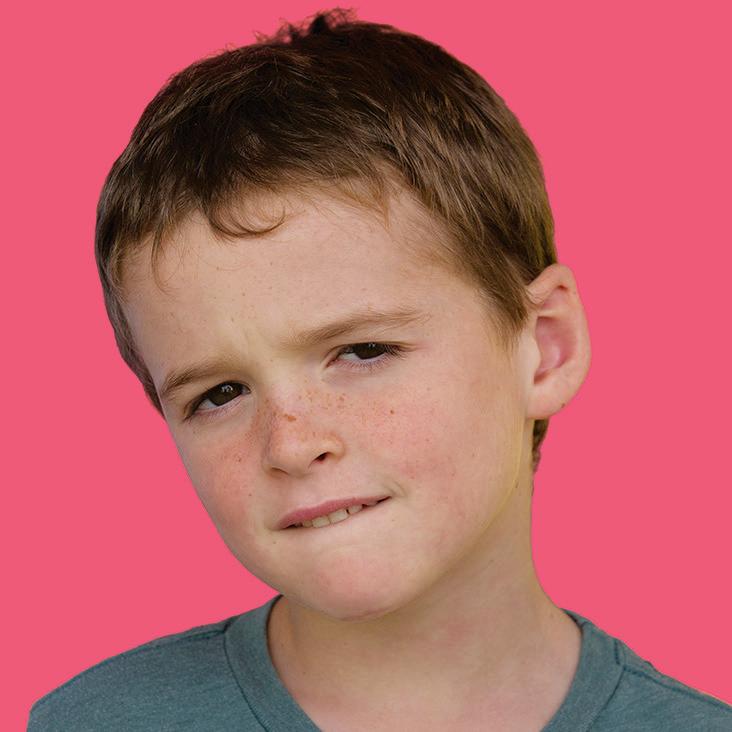

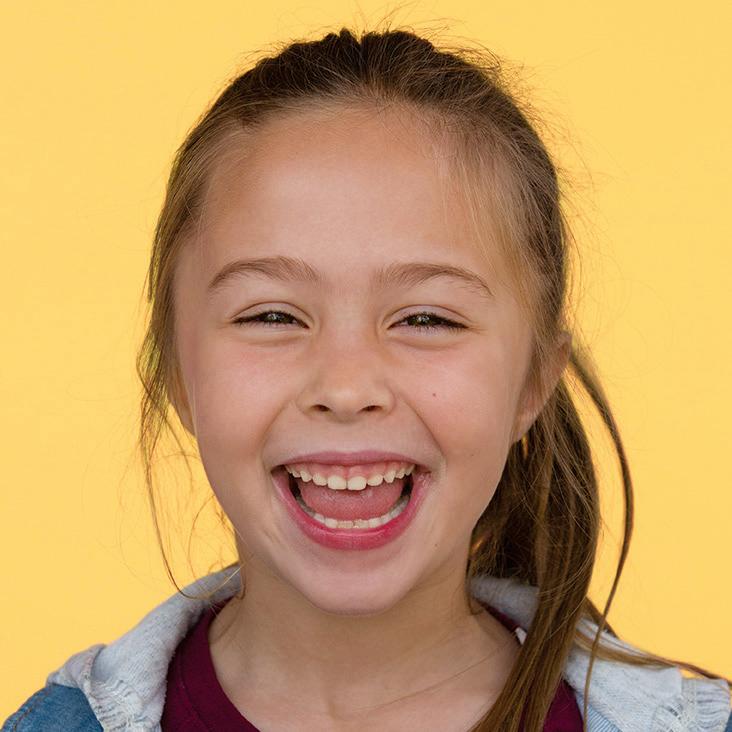
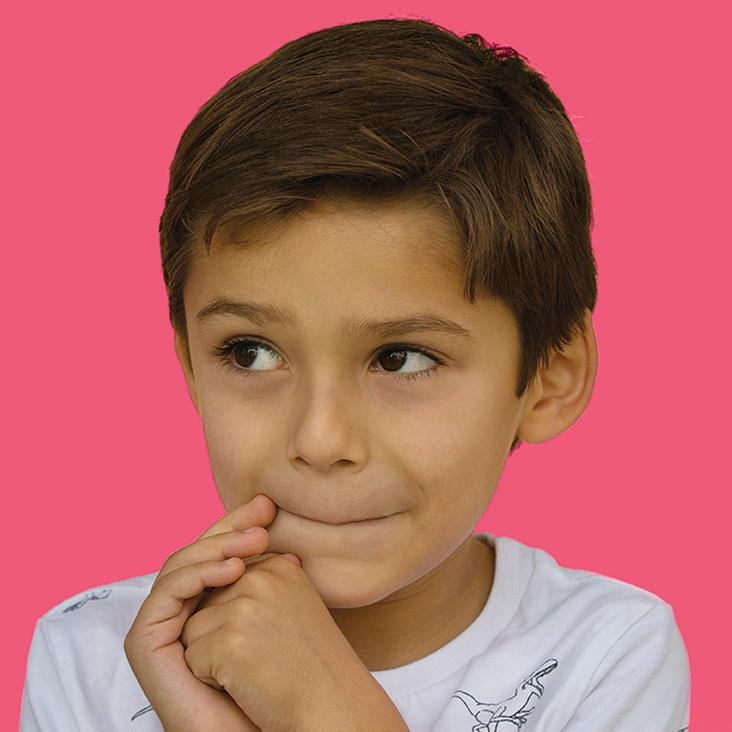

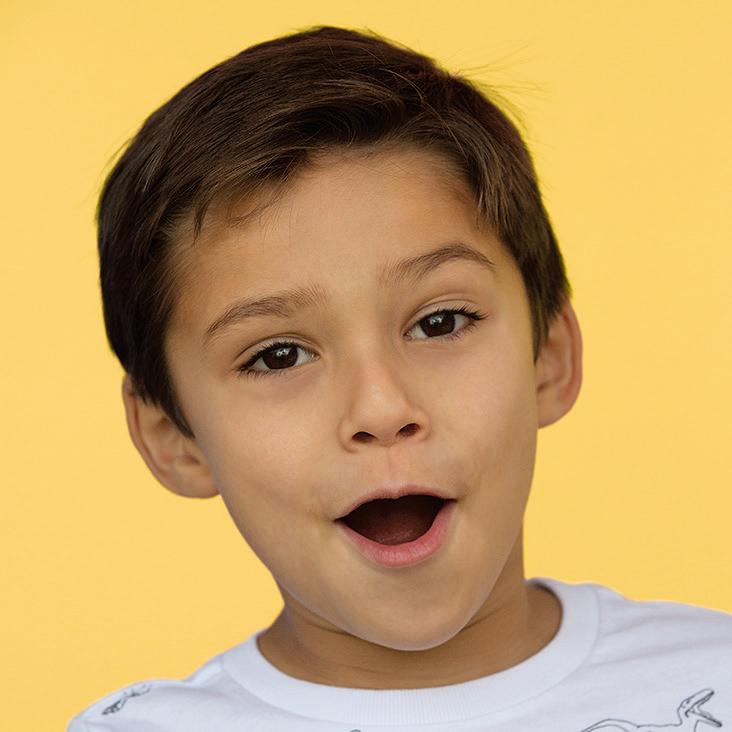
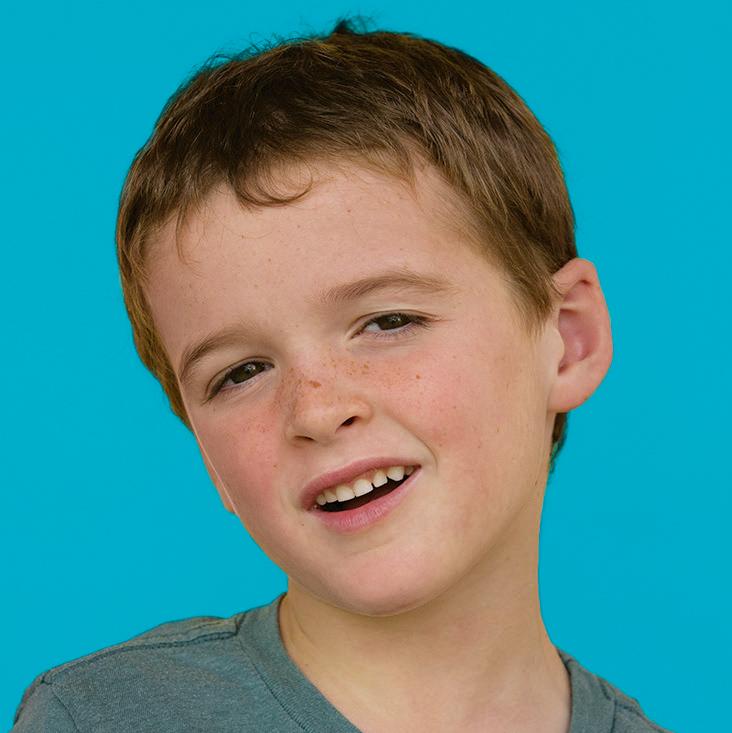
There must be something buried deep within our DNA…a dormant nucleotide suddenly activated and instructed to usurp all rational thinking the moment we become parents. Not only do we immediately experience an overwhelming feeling of love, but we also instantly become relentless in our pursuit to do whatever it takes to ensure our child has the best opportunities for success. For many, that quest begins in the first few weeks of infancy, with “educational” toys quickly introduced into the crib as the first critical step on the path to that coveted Ivy League University. A sudden urge to scramble to fill out applications for the top pre-school or secure the leading math tutor may rapidly develop. Why didn’t you do this years ago, and have you forever impaired your child’s opportunity to succeed?
Hopefully, at some point you stopped your mind’s madness, took a deep breath, and pondered what success really means. You likely defaulted to the traditional metrics of achievement, such as perfection on the SATs, state championships in robotics or debate, and rapid ascension up the ranks of the latest, hot Silicon Valley start-up.
Scoring these critical tally marks are the objective on the success chart of many. However, recent studies show the relentless chase of these hallmarks of success are leading to all-time high levels of stress, anxiety and depression in our children. U.S. News reported earlier this year that “adolescent depression is on the rise,” and quoted a National Institute of Mental Health report showing “about 3.2 million 12- to 17-year-olds have had at least one major depressive episode within the past 12 months.”
Christopher Harrington, Director of Admissions for JSerra High School, confirmed these worrisome statistics. “We are seeing greater levels of stress and anxiety in our applicants than ever before,” says Harrington, who attributes these troublesome indicators in-part to a lack of balance in the curriculum of many middle schools, with students unequipped to handle the increasing pressure. “Students need to appreciate everything life has to offer and better understand what a healthy existence looks like. Balance is critical and must be introduced at a young age.”
Fortunately, there is a growing realization within the educational community — and among parents — that traditional metrics of achievement may not be the best gauges of success. Many are coming to understand that true success is measured by one’s happiness.
For Pegasus, this is not a new concept or a quick shift to follow the latest education trend. Rather, integral to Dr. Hathaway’s vision over 30 years ago was providing a stimulating environment to embrace and grow the whole child, including a focus on non-cognitive competencies. For example, our middle school advisory program has always provided an opportunity for students to check in with themselves, their peers and teachers and engage in meaningful discussions. This approach has not been limited to the classroom, and many students likely remember Pegasus retiree Coach Tyler’s booming voice on the athletic field telling them, “Feel good about yourselves.” The educational community has recently redefined this approach to education, success and true happiness, coining the term: social and emotional learning (SEL). Jason Lopez, Head of School, reflects upon some early observations when he arrived six years ago, “Pegasus had a commitment to encouraging the practice of non-cognitive skills such as kindness, but things were just kind of chugging along like they always had and intentional outcomes were not a part of our vocabulary.” Some of the more subtle differences between objectives and results, however, did not come to light until Lopez’s second year in 2015 when Pegasus began its latest accreditation process with the California Association of Independent Schools (CAIS), designed to assist “in reviewing and clarifying the school’s purpose and goals for students.”
We didn't get this growing up. We are learning along with our kids.
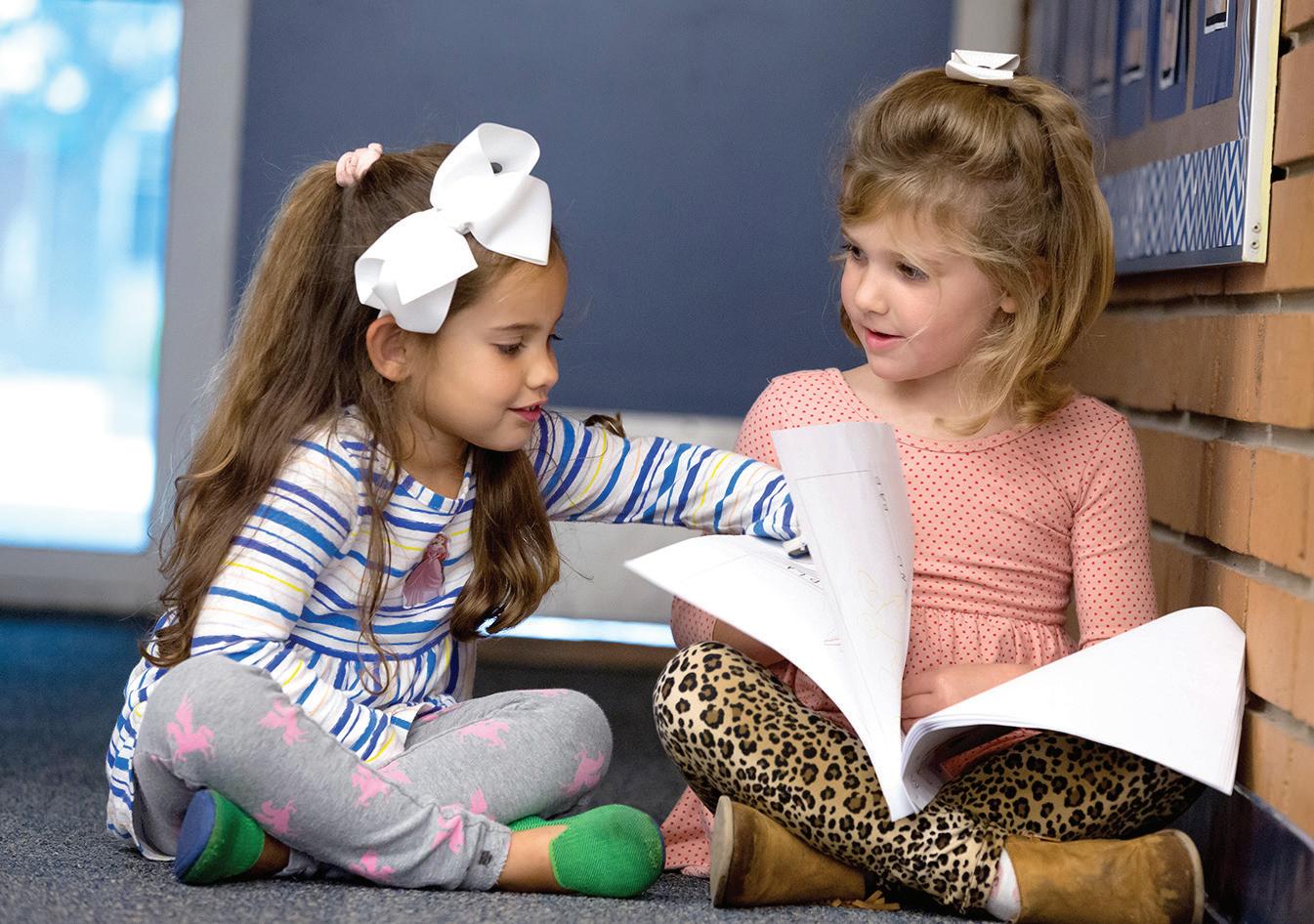
10 Lopez recalls, “This was tremendously important for us, requiring a year’s commitment to deeply explore the roots of our educational foundation, our mission and vision. CAIS pushed us to determine exactly what we stand for and how Pegasus’ curriculum should be structured to best impact the lives of our students, now and in the future.”
The real eye opener came when reviewing the results of a required alumni survey. “Things suddenly got interesting, and not in the way we expected,” Lopez remembers. “It was no surprise our graduates described the school as challenging and competitive, but what came as a shock was hearing many did not realize they were actually smart while attending Pegasus because so many peers scored better or received more recognition. These students may have been #1 in math, but because they were not top in English, they felt like failures.” Tremendous stress and anxiety were also reported, related to significant pressure to succeed and stand out among such accomplished peers. “Poor self-esteem was a common theme,” Lopez said, “which meant we were failing at fully delivering on our Founder’s intent.”
Lopez recalls sitting down with some faculty members to review the survey results and feeling stunned at the level of self-doubt reflected by our alumni. “The feedback was like a shot of freezing water to the face,” Lopez said. “Clearly our students were not getting everything they needed. It was a time to rethink our approach; we’d always had a focus on kindness to others, but what about being kind to ourselves?”
These reflections led to redefining the Pegasus Strategic Plan

to include: A restated commitment to our students that their experience at Pegasus will be transformative. Additionally, as a separate part of the CAIS accreditation recommendations, the Mission Statement was rewritten. The Statement includes much of what has always been present at Pegasus, as reflected in Dr. Hathaway’s original vision, as well as the SEL component of compassion: The story of Pegasus begins with intellectual curiosity and compassion.
The new Strategic Plan outlined two specific personnel dedicated to working toward the SEL health of our students. Pegasus hired Dr. Alison Englar-Carlson, Educational Psychologist, and Christine Lopez, School Counselor, as support for the students. Englar-Carlson focuses mainly on lower school and helps align intentional SEL actions with the school’s school's mission. Mrs. Lopez, a licensed counselor, teaches a middle school rotation class specifically based on instilling SEL skills and acts as a sounding board for middle schoolers. “Now that we have both these professionals, we're able to address the need that was highlighted by our alumni feedback,” says Jason Lopez.
The Pegasus SEL Committee, faculty and administrators have excelled at executing these important SEL Core Values of the curriculum. According to Christine Bridges, Activities and Athletic Director, who helps lead the SEL program along with others, Pegasus specifically decided not to adopt one of the many off-the-shelf programs. “We wanted our teachers to continue to bring SEL into the classroom organically and provide as much flexibility as possible.” Christine Lopez strongly agrees, “We couldn’t just try to layer SEL teachings on top of our academic rigor. It needed to be intentional and infused in our students, something they are experiencing daily whether they realize it or not.”
The SEL committee provides our teachers with resources for age-appropriate lesson plans, programs, and SEL professional development opportunities. Englar-Carlson explained that the committee presents SEL strategies and techniques, along with common language, for use in the classroom. “Pegasus teachers are passionate and creative. We give them the freedom to use the materials as they see fit.”
Fifth-grade teacher Shannon Vermeeren explains that some SEL lessons are explicit, such as Englar-Carlson’s once a week SEL classes for pre-K through second grade. Third graders receive direct SEL curriculum once a rotation, and fourth- and fifth-grade students experience the Health and Development class with our P.E. teachers. Englar-Carlson recalls teaching pre-K students earlier this year how to recognize the feelings of their peers by labeling different facial expressions seen in pictures. Our pre-K students were spot-on most of the time, noticing that a child was angry when “their eyebrows pointed down” or “their arms were crossed.” An observer could see the wheels turning in the students’ heads as they thought about
Social Emotional Learning at Pegasus
how they would feel or act when personally experiencing these feelings they were seeing in the pictures.
In middle school, the advisory program has also evolved. “We were already engaging our students with SEL even though we did not label it as such,” said Kristen Brady, Middle School Learning Specialist. “Now it’s more intentional.” Brady ensures that all students are comfortable in lessons involving SEL competencies. This is often as simple as using non-verbal participation by asking students to hold up a colored card reflecting their mood. When an advisory is ready, it will move those SEL-based activities to student-led discussions. “My sixth-grade students are responding well to the SEL curriculum,” said Jaime Moore, who joined Pegasus this year to teach social studies and advisory. “Participation can be slow, but it is rewarding to have a more reserved student feel safe enough to speak up and voice how they felt during an exercise.”
Christine Lopez notes that the seeds of SEL are being planted in every activity and every classroom. “We’re encouraging our students to learn more about themselves and teaching them to manage their emotions and effectively communicate with our faculty and their peers,” she said.
If you haven’t seen a change in your child, others certainly have. “Pegasus students show up differently,” commented JSerra Admission Head Harrington. “They stand out when they visit our campus. They are incredibly self-aware and exude a calm confidence not always seen in middle schoolers.
JSerra places significant value on the types of non-academic skills Pegasus students are learning.”
Other top schools are also seeking these non-cognitive skills. Sage Hill High School Director of Admission, Elaine MijalisKahn noted, “At Sage Hill, we prioritize social and emotional health and balance, which we believe are key components to effective learning and a positive high school experience. We see our applicants as far more than their grades.”
Our children are letting us know it’s working. When Michele Borba, author of Unselfie, interviewed four middle schoolers ahead of her September presentation, Christine Lopez recalls all four students mentioning the focus on SEL and their advisory experience among the top things they appreciated about Pegasus.
Jason Lopez sums up well what has been achieved over the past couple of years, “Pegasus has always stood out as the best at preparing students academically, but now we are also leading the way at providing the non-cognitive social and emotional skills they need to be successful and happy throughout their lives.” As guardians of our children’s future, we are certainly fortunate to have the opportunity to provide our progeny with the Pegasus experience: a unique path to true success…and true happiness.
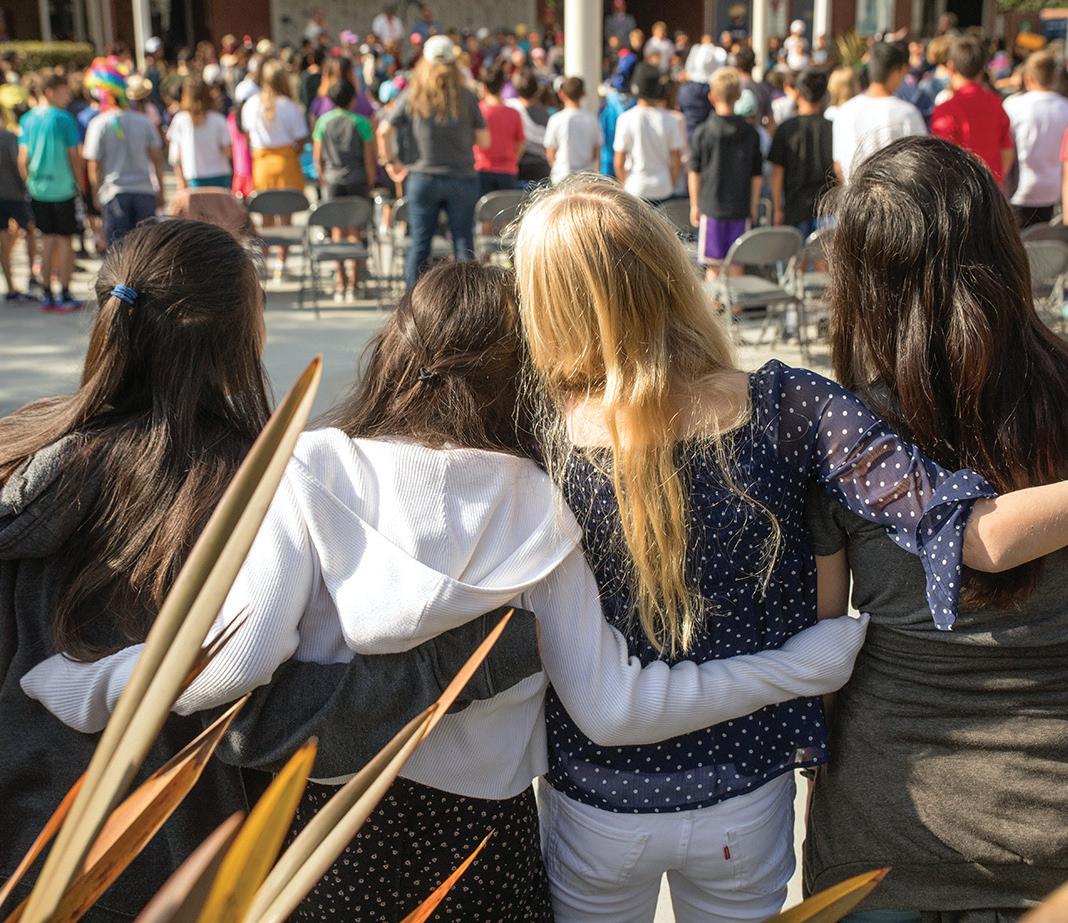
Jessica ("J.J.") McGawn, mother of Brady (’20) and Janie (’22), practiced law for several years in Colorado before moving to California with her family. Contact: jjmcgawn@gmail.com
Damon Wright heads investor, government and corporate communications for Irvine-based Ingram Micro. He defines happiness as crushing powder in Colorado and fly-fishing for trophy cutthroat trout in Wyoming with his wife Mary and daughter Tegan (’22). Contact: damon.wright@ingrammicro.com










